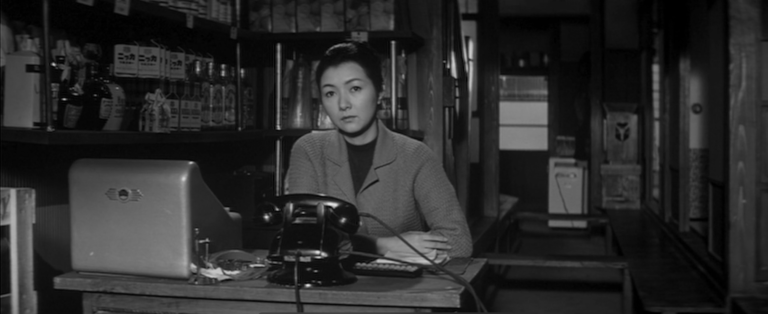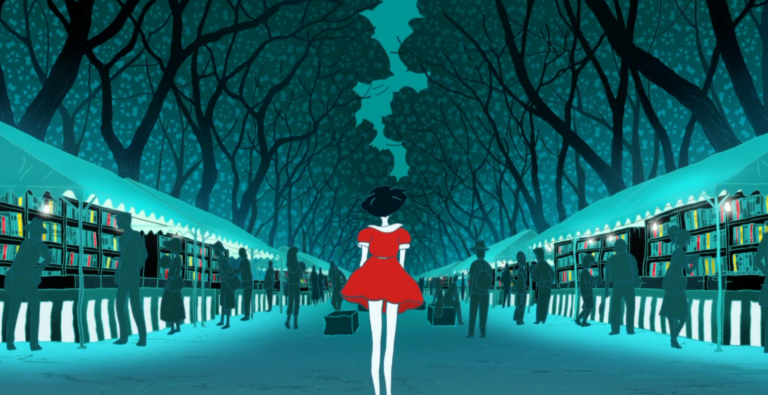Right around the time, Lunana made the Oscars’ shortlist, there was a spirited argument by someone from within the ranks of the Indian critiquing community on how Kadaisi Vivasayi should be India’s nomination next year for the Oscars. Though I have no belief in the notion of awarding films for being the ‘best’ of something, I do acquiesce that the ceremony does have some merit. They give traction to these diamonds in the rough and that in and of itself is a big enough benefit. Without that nomination, there wouldn’t have been an article on Lunana, and neither would I have heard of it.
On the surface, as Lunana grew on me, it brought back memories of watching Vaagai Sooda Vaa over the weekend after a long week of school. The former is set in the remote valleys of Bhutan, the latter in the arid, orange-hued plains of Aruppukottai. The valleys of Bhutan tear through the shoeless feet of the yak-herders and the scorched earth of Aruppukottai rewards the day-labourers with blisters. Pem Zam, the tenacious class leader of Lunana’s only school, presses a heartfelt letter from herself and her peers into the hands of their departing teacher. Elsewhere in the cinematic realm, limping through the heat of Aruppukottai, Mani presses a stack of soiled coins into Veluthambi’s hand asking him to buy him a ₹2 notebook when he visits their village again. Beneath the similarities in their narratives, they both speak of a remote poverty that surrounds a community that is obstinately joyous despite their predicament. Though Vaagai Sooda Vaa fails to exercise the restraint that Lunana does in its exposition, it still was a refreshing diversion from the formulaic Tamil movies of that time.
This brings me back to a question that I asked myself after the surreal viewing of Kadaisi Vivasayi last week. Cinema can be many things – a rumination of the past or an exploration of the future. In some places, it can also be a re-imagination of the present. But, out of all the films that make up my most surreal watches, what sets them apart from the rest? Their effects on me have been seismic and they must be doing something for that to happen. This exercise narrowed down into a blurb of text that I believe is my view on this cinematic ability and its subsequent responsibilities.
Societies that dislodge themselves from the natural state of human poverty, feel an acute pain when surrounded by increasing progress. This progress is beneficial – but in its wake, it concentrates the acute pain of poverty amongst those who are still far from being its benefactors. When that acute pain forces the drive from poverty to prosperity, its purpose is served. Herein, it begins a process of decay and relegates itself to the back of social consciousness. However, this pain is necessary, more so than anything else. Its wounds remain fresh in the minds of those who escaped its throes. Its roots, nonetheless, don’t plow deeper into the minds of their offsprings. Cinema, as a medium and an art form, assumes yet another social responsibility here. To fill this paucity, it must, through its proponents, re-construct the situations that are capable of causing this pain and send it careening through a captive audience. Sometimes this pain is delivered as a vehement explosion, sometimes it is merely a whisper. The manner doesn’t matter insomuch that the pain is never feigned. I include both aspirants and practitioners when I say that ours is a profession that continues to paint ever darkly the line of contrast between yesterday and today. Plunged into an era of prosperity, we depict a rooted pain, without manipulations, to a generation that requires it to dislodge itself from the stasis that it wallows in. This pain should continue to abolish the superficial worries of today and replace them with the real worries of yesterday. By pulling back to the fore what constantly creeps into the crevices of our minds, we establish an emotional remembrance that is necessary to drive society forward while ensuring that trailblazing progress doesn’t burn roots nestled under the soil.
The question may persist – why do we encapsulate this pain? This pain binds communities together. Pain causes distress that can only be overcome with a reliance on a supportive community. The individual mind may have a monopoly over ideas, but the realization of these ideas is rooted in a communal impetus. In this process of encapsulation, the greatest note of caution that a filmmaker should be wary of is the vice of being didactic. The desire to be overt might be pressing, but that would defeat the purpose of the medium. Cinema is a mirror. Mirrors don’t pass judgment. Mirrors don’t arbitrate and they don’t patronise the ability of the human mind to reach its own moral conclusions. If the mirror is carefully constructed, if the pain isn’t polluted by opinions, it would engender jolts of revitalisation to frayed links between individuals and serve to rebuild a community gone astray. This responsibility is amongst cinema’s greatest.
This wacky blurb of text is something that I can string into many of my recollections, but for this moment, let me stick with Lunana. When I wrote it, I didn’t have any idea that I’d find yet another suitable example for this need to be mirror-like. Lunana follows Ugyen Dorji, a want-away singer and probably the only Bhutanese who suffers from altitude problems. When his sorry excuse doesn’t pass muster, his government job as a teacher takes him to Lunana, the world’s most remote school. Holding onto a promising pamphlet about Australia, he decides to see this seeming ordeal through.
Throughout his time at Lunana, the film merely tries to reflect a change in his mindset. Many individuals, myself included, have been want-aways. We see the promise of foreign lands and scrutinize what our own countries have. I often tell myself that my failed application to the National University of Singapore was a blessing in disguise. The alternative took me to a place where I continued to feign ignorance of the rich experiences that surrounded me. But when the reality of my situation cemented itself, I made efforts to branch out to those around me. Those three years will always be of great importance to me in my life. They allowed me to interact with people that represented the far-flung corners of my own land. At the same time, the changes that took place in Tamil cinema adopted a necessary realism – Pariyerum Perumal revealed to me the harsher realities of landscapes beyond big cities. Though I still left to follow through on my dream of exploring Europe, I’m grateful that those three years have rooted in me a deeper love and appreciation for the sweeping diversities of my land.
However, this realization dawns much later for some and rarely for others. Lunana’s theme is universal, and it captures an unbridled lushness. It never errs on the side of being overt with its intentions. Yes, Pawo Dorji wants you to feel nostalgic for what you are leaving behind. But, in some instances, when the village chieftain asks how one can seek happiness far away from one’s own land, the question is pointed at both Ugyen and us. When a film is prompting a conclusion from you, rather than offering you one, the effects it can render within you is far stronger.
To do so, a film must restrain at every juncture. Every choice a director makes, even the smallest ones, must avoid any judgement whatsoever. It would have been very easy for Pawo Dorji to make the chieftain say that it would be more important for Ugyen to stay back and teach the children. That his presence is vital for the future of the community. But his question, the remorseful manner in which he said it, and the pause he takes before leaving the room are all some fine examples of how you let something fester in the minds of your viewers. The function of a mirror is exactly the same. Only when a finger runs across sagging skin or greying hair, does it remind the mind with forceful pain of the years that have been lost. Through these moments that reflect Lunana’s mindset, Pawo Dorji provides a speck of the realization that some of us have when we contemplate seemingly greener pastures.
Lunana is beautiful for what it tries to convey and how it conveys it. The landscape it covers is something that can make you desire that 6-day-trek to Lunana despite the rocks and mud that await your arrival. It may have not moved me in the way that some films have in the past, but it did bring me a fresh pang of tranquillity that one needs every so often in a world that speeds ahead with no breaks.





